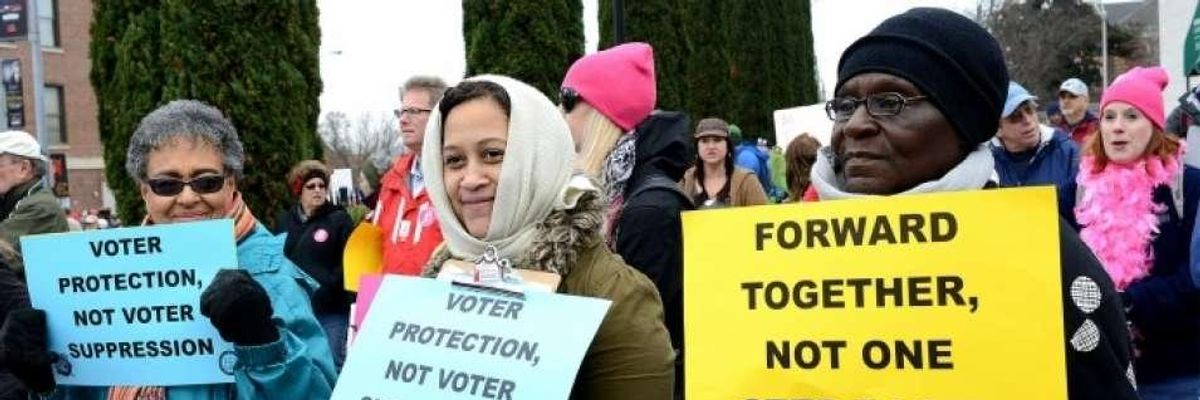In a move that frustrated voting rights advocates, a federal appeals court on Friday ruled that Texas can implement a revisied voter identification law that critics claim is unconstitutionally discriminatory.
"We continue to firmly believe that the Texas photo ID law is one of the most discriminatory and restrictive measures of its kind," Kristen Clarke of the Lawyers' Committee for Civil Rights Under Law, part of the legal team that challenged the measure, said following the court's decision.
In a 2-1 ruling, a 5th U.S. Circuit Court of Appeals panel reversed a district judge's 2017 ruling that Senate Bill 5 unconstitutionally discriminates against black and Latinx voters. The legislation in question is a revised version of Senate Bill 14, which was enacted in 2011 but eventually deemed discriminatory and blocked by federal courts.
S.B. 14 mandated that voters present a government-issued photo ID; S.B. 5 added a provision that required those who lacked such identification to sign an affidavit and present an alternate ID.
"No law should be allowed to stand that is merely built on the back of a plainly discriminatory law," Clarke declared.
In his dissenting opinion, Circuit Judge James Graves wrote (pdf) that "S.B. 5 does not fully remove the burden disproportionately placed on poor and minority voters; it just creates a new and different burden."
However, "even if S.B. 5 were, as Texas and the majority both claim, ostensibly to remove or otherwise lessen the discriminatory impacts of S.B. 14, it still does not change the reason--the discriminatory reason--why the state enacted a voter ID law in the first place," Graves concluded. "A hog in a silk waistcoat is still a hog."
"It is, essentially, the same law," explained ProPublica reporter Jessica Huseman, "and it was a mess."
Sherrilyn Ifill, president of the NAACP's Legal Defense Fund, expressed disappointment with the majority's ruling, but vowed to continue the fight.
"We maintain that no voter should ever be turned away from the polls because of an ID requirement," she said, "and we will continue to aggressively pursue the right to vote wherever it is challenged."
Myrna Perez, deputy director of the Brennan Center's Democracy Program, called on the state's elected officials to better serve their constituents.
Pointing out that "every court that has reviewed Texas' prior voter ID law has found that it would have a discriminatory effect," Perez said, "Rather than seeing what the courts will let them get away with, Texas should be thinking about how to best serve its voters."

